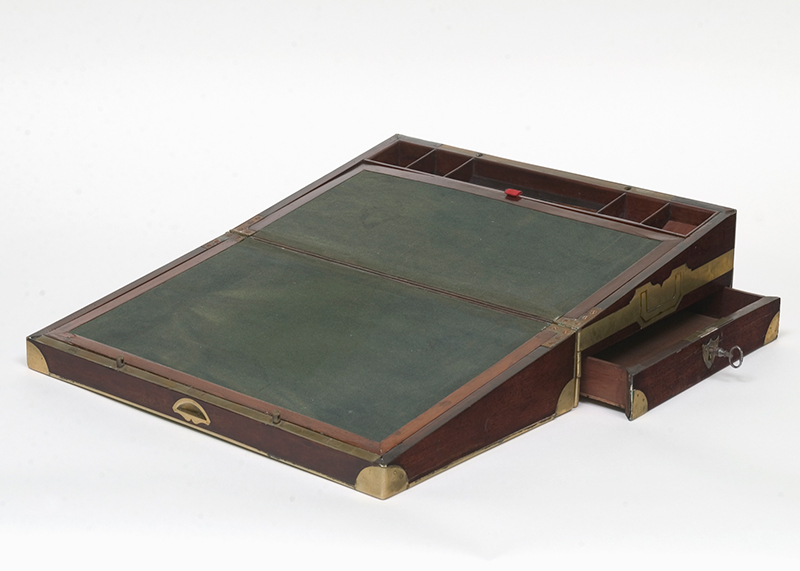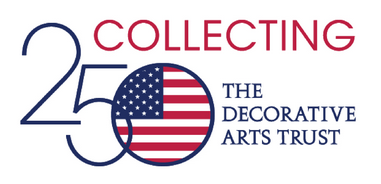Traveling Desk

| Maker | Unknown |
| Date of Creation | c. 1800 |
| Location | England (Used in Ellicott City, Maryland) |
| Materials | Mahogany, brass, baize |
| Institution | Homewood Museum, JHU Museums |
| Credit Line | Gift of Sadie B. Feldman & Rosetta A. Glashofer to JHU, 1986. |
| Accession Number | HH86.4.1a-k |
| Photo Credit | Homewood Museum, JHU Museums |
This portable desk is engraved with the Carroll crest on its outside and is believed to have been owned by Charles Carroll of Carrollton, the only Catholic and longest-living signer of the Declaration of Independence. When opened, the green baize-lined interior writing surface with hinged compartments includes wells for pen and pencil recesses. As Carroll was an individual remembered specifically for his authored contributions to the patriot cause in Maryland, including writing as “First Citizen” in the highly publicized debate in the Maryland Gazette against Loyalist Daniel Dulaney, his association with a writing desk from the period is particularly poignant. The desk, when tied with Carroll, conjures images of the patriot bringing his writing implements with him into a carriage and on travels, suggesting a dedication to his work that he would be well-remembered for. This romantic image of Carroll obscures the reality that patriotic treaties would not have been the only thing he may have used a writing desk for, however. While he is frequently remembered for championing the freedom of colonists and Catholics in early America, Carroll was also an enslaver of hundreds of individuals throughout his lifetime. In letters that Carroll wrote to his son that could have been written on this mahogany desk associated with his advocacy for freedom, the so-called Founding Father referred to these people more as livestock than as individuals with their own dreams of freedom. Both a symbol simultaneously of hope and oppression, Charles Carroll’s portable writing desk is a moving allegory of revolutionary America.
